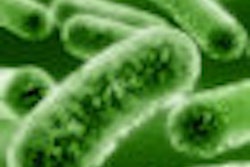Black tea may contain higher concentrations of fluoride than previously thought, which could pose problems for heavy tea drinkers, said researchers from the Medical College of Georgia during a presentation of their findings July 14 at the 2010 International Association for Dental Research (IADR) conference in Barcelona, Spain.
"The additional fluoride from drinking two to four cups of tea a day won't harm anyone; it's the very heavy tea drinkers who could get in trouble," said lead researcher Gary Whitford, D.M.D., a regents professor of oral biology in the School of Dentistry.
Dr. Whitford discovered that the fluoride concentration in black tea had long been underestimated when he began analyzing data from four patients with advanced skeletal fluorosis. The common link between these four patients was their tea consumption-- each person drank 1 to 2 gallons of tea daily for the past 10 to 30 years.
"When we tested the patients' tea brands using a traditional method, we found the fluoride concentrations to be very low, so we wondered if that method was detecting all of the fluoride," Dr. Whitford said.
Camellia sinensis creates a quandary when measuring fluoride, he added. Unique among other plants, it accumulates huge concentrations of fluoride and aluminum in its leaves; each mineral ranges from 600 mg/kg to more than 1,000 mg/kg of leaves. When the leaves are brewed for tea, some of the minerals leach into the beverage.
Most published studies about black tea traditionally have used a method of measuring fluoride that doesn't account for the amount that combines with aluminum to form insoluble aluminum fluoride, which is not detected by the fluoride electrode, Dr. Whitford said. He compared that method with a diffusion method that breaks the aluminum-fluoride bond so that all fluoride in the tea samples can be extracted and measured.
He tested seven brands of store-bought black tea, steeping each for five minutes in deionized water, which contains no fluoride. The amount of fluoride in each sample was 1.4 to 3.3 times higher using the diffusion method than the traditional method.
The new information shouldn't deter tea drinkers, as the beverage is safe and some teas even have health benefits, Dr. Whitford said. "The bottom line is to enjoy your favorite tea, but like everything else, drink it in moderation."
Copyright © 2010 DrBicuspid.com



















